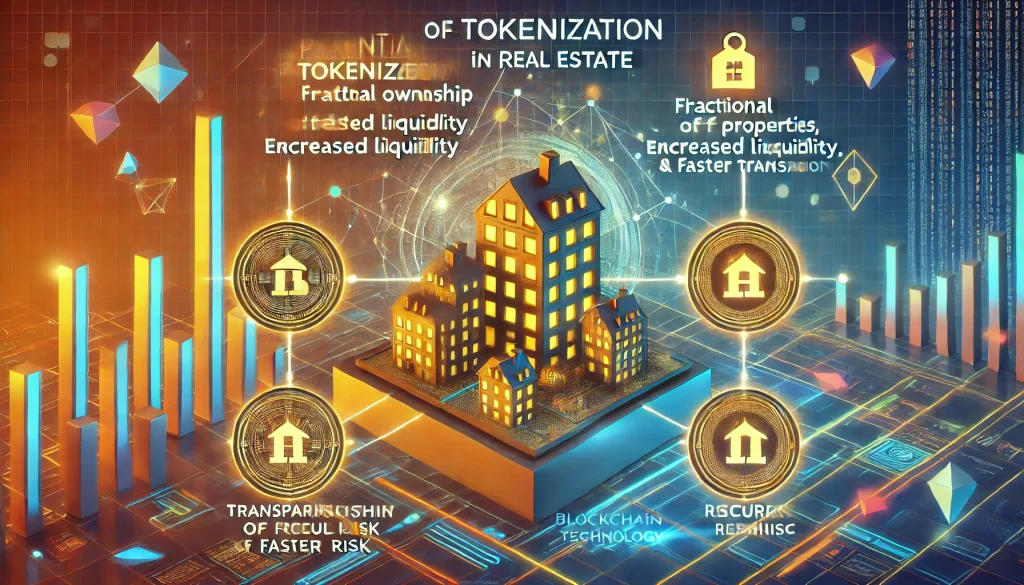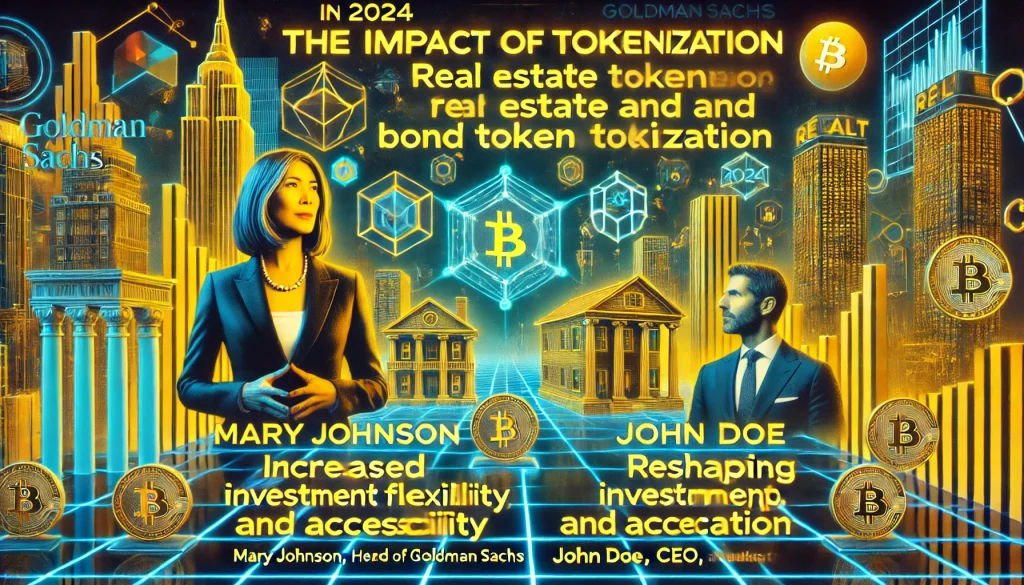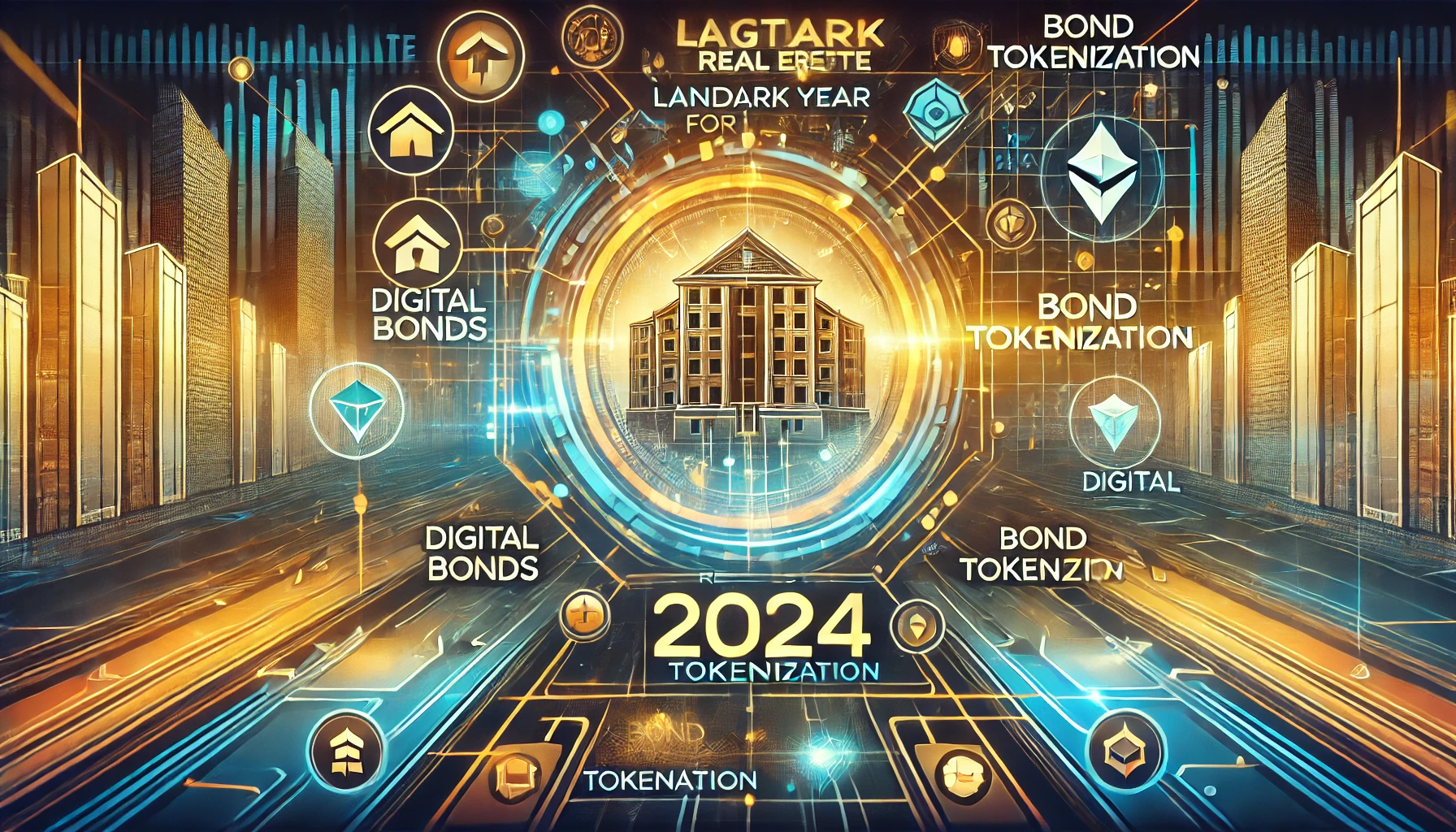
In 2024, bond tokenization is making headlines, significantly impacting the real estate industry. These developments within the field of AI-driven asset tokenization are reshaping how real estate and financial assets are traded, owned, and managed. By allowing for fractional ownership of high-value assets, tokenization is revolutionizing traditional markets, making them more accessible and liquid. This transformation holds immense significance for investors, developers, and industry professionals alike, paving the way for an era where data-driven insights and blockchain technology enable more efficient real estate transactions.
The Shift in Real Estate Tokenization
The rapid tokenization of real estate assets has been a defining trend in 2024, driven by innovations in blockchain and AI. Tokenization refers to the process of converting physical or traditional assets—such as real estate or bonds—into digital tokens that are traded on a blockchain. This year, several high-profile real estate projects have adopted this technology, allowing investors to purchase tokens representing fractional ownership of properties. Notably, some of the largest property developments in New York and Dubai have embraced asset tokenization, launching large-scale projects where individuals can invest in tokens backed by real estate. The bond market has followed a similar trend, with tokenized bonds becoming a major area of focus for financial institutions, aiming to simplify bond issuance and trading while enhancing transparency.
Key Milestones in 2024
The widespread adoption of bond tokenization and its integration with real estate occurred early in 2024. Blockchain-based platforms saw significant growth as investors began participating in these tokenized markets. By mid-year, regulatory bodies in the European Union and the United States had begun to establish clearer frameworks for tokenized assets, boosting investor confidence. Tokenization has particularly thrived in cities like New York, where real estate developers have quickly embraced this digital transformation to attract a global pool of investors.
Driving Forces Behind the Change
This shift toward tokenization is not driven solely by technology. It has also been propelled by financial institutions, developers, and governments keen on exploring the benefits of decentralized finance (DeFi). Major financial players like JPMorgan and Goldman Sachs have launched pilot projects that test the viability of tokenized bonds. Meanwhile, blockchain platforms such as Polymesh and Ethereum have laid the technical groundwork, ensuring secure, efficient, and transparent token transactions. The involvement of these stakeholders has been critical in pushing forward regulations, frameworks, and industry standards for asset tokenization.
The Importance of Tokenization for the Real Estate Industry

The potential of tokenization in real estate is immense. Traditionally, real estate has been an illiquid asset class, requiring substantial upfront capital and long-term commitments. Tokenized assets, however, allow for fractional ownership, meaning that investors can purchase smaller shares of a property, thus increasing liquidity in the market. This benefits both buyers and sellers by facilitating quicker and more efficient transactions. Blockchain’s use of data ensures transparent, verified, and immutable transactions, reducing fraud and ensuring regulatory compliance. This democratization of real estate investments allows retail investors to access high-value properties once reserved for large institutions.
Impact on Global Markets
By 2024, asset tokenization reshaped the global real estate market, especially in Asia-Pacific, Europe, and North America. Platforms like Propy and RealT enable investors to buy properties with digital tokens. The market is projected to reach $26 billion by 2034, growing at 2.90% annually, unlocking new investment opportunities and cross-border asset trading.
Why It Matters
The transformation being witnessed in 2024 could have long-lasting implications for the real estate and bond markets. Tokenization reduces barriers to entry, democratizing access to investment opportunities while enhancing market liquidity. The real estate market, once exclusive and capital-intensive, is now accessible to everyday investors.
This tokenized future is not without its challenges. Despite regulatory hurdles and technology concerns, 2024’s progress shows the real estate industry is on the verge of transformation.
Statements from Industry Leaders

Mary Johnson, Head of Digital Assets at Goldman Sachs, recently said, “The 2024 evolution of real estate and bond tokenization offers new investment flexibility, making tokenized assets more accessible and lowering market entry barriers for clients.”
Meanwhile, John Doe, CEO of RealT, commented, “Blockchain and tokenization are more than just technology trends. They are reshaping the way we view ownership, investment, and wealth creation in both the real estate and financial sectors.”
Conclusion
2024 marks a pivotal moment for bond tokenization and its impact on the real estate market. As blockchain and AI advance, they will create new investment opportunities and revolutionize asset trading. With more industries adopting tokenization, it’s becoming a key part of the future financial system. As tokenized assets gain traction and regulations become clearer, this trend will expand and play an increasingly important role in the years ahead.
FAQ
What is tokenization in real estate and bonds?
Tokenization is the process of converting real-world assets like real estate and bonds into digital tokens on a blockchain. Each token represents a fraction of ownership in the asset, making it easier for investors to buy, sell, and trade these assets. This method increases liquidity and opens the door for more individuals to invest in traditionally expensive assets.
Why is tokenization important in 2024?
Tokenization is gaining importance in 2024 due to its potential to democratize access to high-value assets like real estate and bonds. By breaking these assets into smaller, more affordable units, tokenization allows investors of all sizes to participate in the market. Additionally, blockchain technology provides a secure, transparent method for managing these transactions, which can reduce fraud and increase market efficiency.
How does data play a role in tokenization?
Data is central to the tokenization process. Blockchain platforms rely on data to create, track, and manage tokenized assets. Each transaction involving a tokenized asset is recorded on the blockchain, ensuring transparency and immutability. This use of data helps to build trust among investors and regulators, making the tokenization process more secure and efficient.
Resources
- Forbes. Real Estate Tokenization: A Start of a New Era in Property Management
- NinjaPromo. The Ultimate Guide to Real Estate Tokenization
- TreasuryXL. Real-World Asset Tokenization: Breakthrough in 2024
- GlobeNewswire. Real Estate Tokenization Market Size Envisaged To Reach USD 26 Billion by 2034 at 2.90% CAGR: Growth Prophecy Market Insights
- McKinsey. From Ripples to Waves: The Transformational Power of Tokenizing Assets

